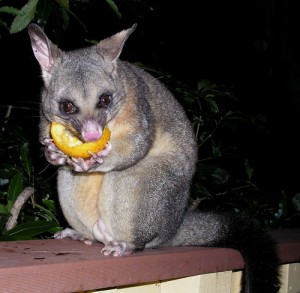Domestic Fruit & Garden Netting: Harvest Without Harm
What’s fruit and garden netting that you use to protect your fruit trees and vege patches got to do with animal law?
Well, from 1/9/2021, the Prevention of Cruelty of Animals Regulations 2019 (VIc) were amended to introduce netting standards, so if you use netting in a domestic setting you need to comply with these regulations. The use and sale of non-compliant mesh attracts significant financial penalties.
What mesh should I use?
Mesh is now required to have a mesh size of 5mm x 5mm or less at full stretch. It is also recommended that you use white mesh as nocturnal animals are able to see it and avoid the net. In terms of material, look for net with a strand diameter thicker than 500 microns or with a cross weave design to further help reduce injuries and death of animals.
Importantly, discarding old netting can still be an entanglement risk for animals so place your old netting in a strong biodegradable bag before sending it to landfill.
Why has the regulation been introduced?
Fruit on household trees and plants is a food source for wild animals and netting is commonly used to protect fruit. Inappropriate netting can kill or injure animals such as birds, possums or flying foxes. Large mesh netting is more likely to entangle small animals and their struggling can cause deeps cuts and strangulation often leading to death. So reducing your mesh size or looking for alternatives is a great way to reduce the risk to our wild animal co-occupants in garden spaces.
Are there animal friendly alternatives to netting?
There are other options available, for example fruit bags can be placed over individual branches. Fruit ags can reduce the risk of capturing animals will leaving excess fruit available for hungry wildlife.
There are pictures of compliant netting and alternatives to netting on the Agriculture Victoria website and you can access that you can access here

